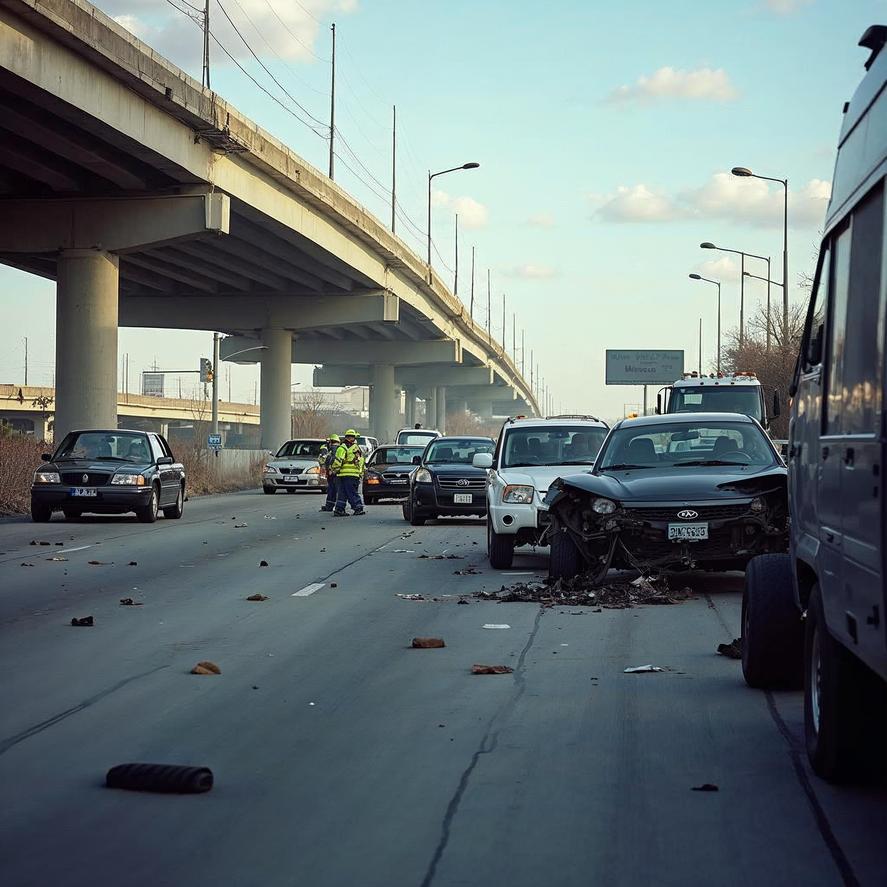
Unfortunately, based on your response, you may not qualify to file a claim. Most personal injury cases must be filed within two years of the accident, in accordance with the statute of limitations. Please consult with a licensed attorney to explore any possible exceptions or additional options.
Chain-reaction crashes, also known as multi-vehicle accidents, occur when one collision triggers one or more additional collisions involving multiple vehicles. These types of accidents are common on congested roads, especially in busy cities like Dallas. Understanding how these crashes happen and what to do afterward can help you protect your rights and potentially receive the compensation you deserve.
Several factors contribute to the occurrence of chain-reaction crashes in Dallas. Some of the most frequent causes include:
If you are involved in a chain-reaction crash, it's important to take immediate and proper steps to document the accident and protect your claim. Here are essential actions to consider:
First, check yourself and others for injuries and move to a safe location if possible. Call 911 to report the accident and request medical assistance if needed.
Gather evidence by taking photos of the vehicles, damages, license plates, and the overall accident scene. Collect contact information from all drivers, passengers, and witnesses involved.
Refer to our guide on how to document a construction zone crash claim for useful tips on thorough record-keeping in complex accident scenarios.
Inform your insurer promptly and provide accurate details about the crash. Keep copies of correspondence and claim numbers for your records.
Even if injuries seem minor, getting a medical assessment ensures your health and creates documentation linking injuries to the accident.
Chain-reaction crashes can involve multiple insurance policies. Knowing what coverage applies to your situation helps clarify your claim process. You can learn more about insurance options at what insurance covers.
Determining fault in chain-reaction crashes can be complicated because multiple drivers may share responsibility. Law enforcement reports, witness statements, and evidence play crucial roles in establishing liability. Sometimes fault may be divided among several parties, affecting compensation outcomes.
While you cannot control other drivers, certain safe driving practices can reduce your risk of being involved in a chain-reaction crash:
For more detailed information about accident processes and claim filing, consider reviewing resources on denied claims guidance. Understanding common pitfalls can help you avoid delays or denials during your claim.
According to the National Highway Traffic Safety Administration, multi-vehicle crashes significantly contribute to traffic fatalities and injuries, highlighting the importance of awareness and safety measures on the road.
Chain-reaction crashes in Dallas present unique challenges for drivers involved, from determining fault to navigating insurance claims. By understanding the causes, taking proper post-accident steps, and knowing your coverage, you can better protect yourself and your interests after such incidents.
Unfortunately, based on your response, you may not qualify to file a claim. Most personal injury cases must be filed within two years of the accident, in accordance with the statute of limitations. Please consult with a licensed attorney to explore any possible exceptions or additional options.